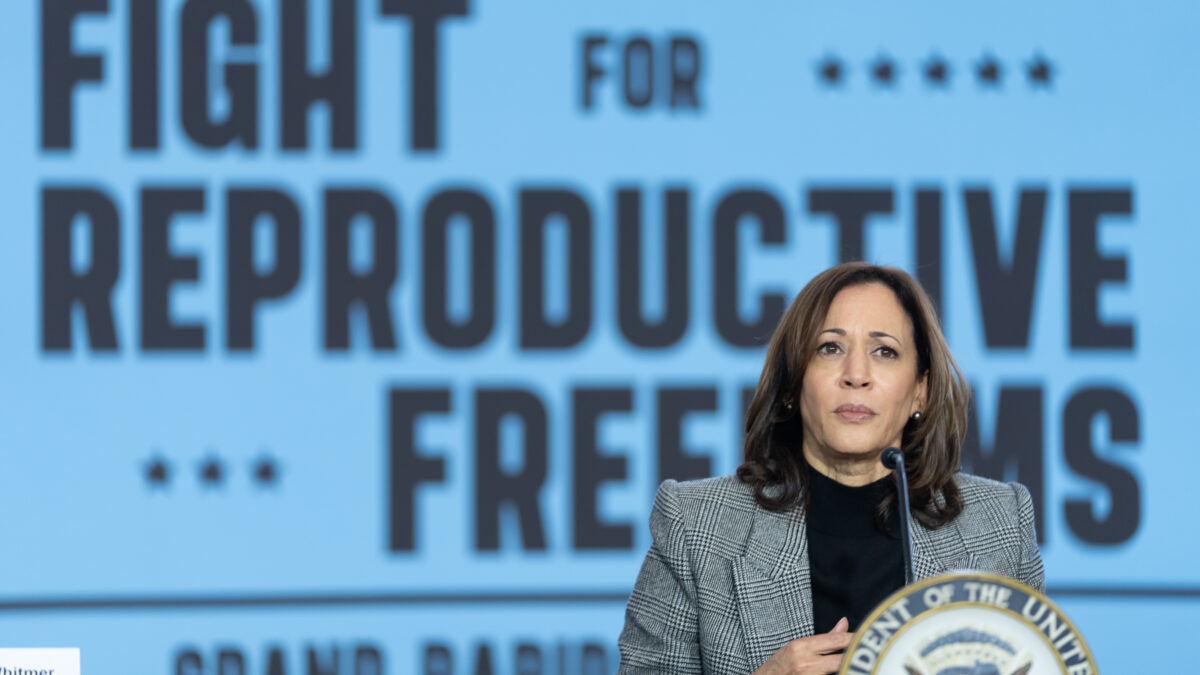Tonight Americans will watch as President Biden recognizes Texas woman Kate Cox at his 2024 State of the Union Address. Cox became a “victim” according to the pro-abortion left last December when the Texas Supreme Court ruled she could not abort her unborn baby diagnosed with Trisomy 18, a condition associated with severe developmental delays. Her lawyers said she ultimately obtained an abortion out of state.
Mothers like Cox are often not informed that children diagnosed with Trisomy 18 and other life-limiting conditions can sometimes thrive into their early twenties. Instead, many women are presented with induced abortion as the first or best course of action in the face of such a prenatal diagnosis.
The very first words these expecting mothers deserve to hear are those of hope, encouragement, and compassion. As a board-certified obstetrician/gynecologist, I’ve accompanied many patients through these challenging moments with a focus on holistic options and resources to alleviate their fears and remind them that every life has value, even if outwardly imperfect in society’s eye.
How a doctor engages patients in these challenging situations can either help alleviate their fear or increase it. Research shows, for example, that it’s important when delivering news of a prenatal diagnosis that physicians use a trauma-informed approach that acknowledges many women’s grief over the diagnosis and subdues the fight, flight, or freeze response they often experience in the moment. At the same time, physicians must lovingly convey the liberating truth: that sons or daughters born with health conditions are just as integral to their families as healthy babies, no matter how brief their time together.
I begin my patient consultations by offering both compassion and hope to women who receive a life-limiting prenatal diagnosis. I empathize with those who receive the news that their child is going to require life-long care. About 17 years ago, my own son, Max, was diagnosed with autism, speech-motor apraxia, and an intellectual disability — conditions requiring around-the-clock care.
I next make a point to carefully explain how the diagnosis might affect the mother’s pregnancy. She may require additional monitoring and ultrasounds, or a change in the route or timing of her delivery. We also discuss resources available such as perinatal palliative care, peer support, and developing a birth plan, which includes an understanding of the decisions regarding labor, birth, and the care of her baby. While these considerations are difficult to address, discussing them openly acknowledges the humanity of the child and empowers mothers with the knowledge they need to make decisions at each step of their journey.
Not once have I ever encountered a woman who regretted her decision to give birth to a child who had an adverse prenatal diagnosis. One mother expecting twin boys, one with a life-limiting condition, was initially too afraid to look at her son when he was born, knowing that he would soon die. Immediately after his birth, however, love for her son surpassed her fear, and her son spent his last moments in his loving mother’s arms as she delivered her second twin.
Many families who give their children a chance to survive despite the odds also come to realize that their children with disabilities are a blessing to everyone around them. Max’s developmental challenges and joyful personality have led my family to grow in generosity and love for each other. We are “Team Max!” Max has made us better people, just as he has done with the non-disabled peers he interacts with at school.
Max belongs in our family, his school, and our community just as much as those who do not have disabilities. It’s appalling that many children who are celebrated for their diversity and provided legal accessibility at school do not receive the same inclusive treatment when they are diagnosed with a life-limiting condition in the womb, where they are too often treated like disposable commodities instead.
Likewise, physicians who are too quick to encourage abortion do women a grave disservice: They complicate women’s grief over the loss of what they thought their sons or daughters’ lives would look like. Whether it be the palliative care teams who can help families through the grieving process of losing a child soon after birth or the agencies and programs that can help families through the long-term caretaking needs of a child with special needs, society must focus on strengthening these resources instead of turning to the false solution of induced abortion. No child deserves to die for being different.
When physicians truly accompany women facing prenatal diagnoses in their health journey, we offer them the most inclusive treatment option possible for their children diagnosed with disabilities in the womb.
So Thursday night, and any time pro-abortion advocates and politicians hold up families in these situations, we must also remember that human worth and dignity are not related to how long we live, what we look like, or what we’re capable of.









